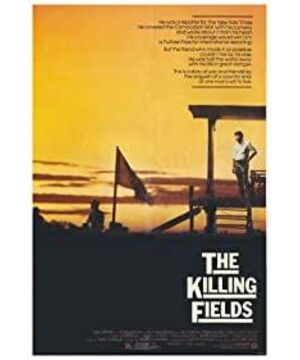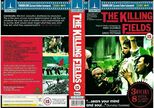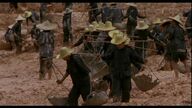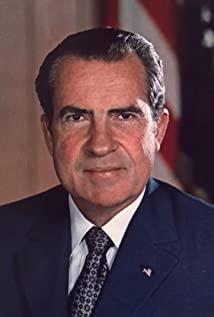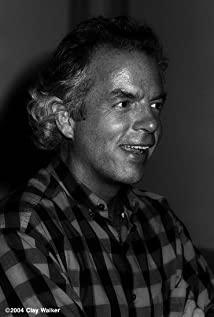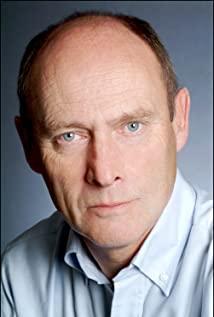This model of reporters taking photos of relevant massacre crimes, and then trying to escape and making the evidence public, is obviously learned from domestic films such as "Blood Massacre".
The friendship between Zinny and Pandey could have been deeper, and now it's a bit diluted by the context of the Holocaust.
It's a blessing to be able to catch a gecko in a heavy rain and a wild tomato.
The skeletons on Pandey's escape route are shocking.
Was there still a radio eavesdropping on the radio at that time? However, around the 1980s, there were people listening to "reactionary radio stations" in mainland China.
The cruelty of reality is a hundred times more than the movie shows.
The rulers promoted the use of "old people" (farmers in the original liberated areas) to supervise "new people" (military and political personnel, intellectuals, and skilled workers of the old regime). (Similar to the four classes of people in the Yuan Dynasty, first-class Mongolians, second-class Semu people, third-class Han, fourth-class southerners, and even several Han people can share a kitchen knife. In addition to the fourth-class, there is a tenth-class There are one official, two officials, three monks, four Taoists, five doctors, six craftsmen, seven craftsmen, eight prostitutes, nine scholars, and ten beggars.) The Khmer Rouge said it eliminated classes, but in fact there are still two levels.
Chi-Cambodia used extreme methods of massacre to destroy classes, directly destroying cities, canceling currency, and canceling normal husband and wife relationships. It regards knowledge as a crime. It only sings revolutionary songs. It strictly prohibits the spread of Western culture. There is no hospital. Everything is controlled by government rationing. Practice the purest "Communist Cism". During the five years in power of the Khmer Rouge, Cambodia’s unnatural deaths were estimated at 1 to 3 million, while the total population of the country was only 7 million at that time. Pol Pot is definitely an executioner. The No. 5 figure, Qiao Samphan, is of Chinese descent. He once advocated a peaceful route. Later, he was still ranked third on the Khmer Rouge trial list and sentenced to life imprisonment.
What has been overlooked is that the Khmer Rouge massacre also included 215,000 Cambodian Chinese, and almost 10,000 Vietnamese in Cambodia were killed. Vietnam invaded Cambodia with one hundred thousand "volunteer" troops. On the one hand, "those who offend Vietnam will be punishable even if they are far away." On the other hand, it is also to dominate Southeast Asia and to cooperate with the Soviet Union's global cold war strategy. Today, Cambodians are grateful to Vietnam for overthrowing the extremist regime of the Khmer Rouge. Without Vietnam, Cambodia does not know what it will become.
It is worth mentioning that shortly after Vietnam invaded Cambodia, China launched a "self-defense and counterattack war against Vietnam."
The history of evil needs to be remembered even more. learn from past experience. I think people who have experienced it do not want to experience the Khmer Rouge, Stalin and other periods. But the extremely cruel ghost has never dissipated, and there are always people with ulterior motives who want to return to the so-and-so era.
PS, who plays Pandey, is of Cambodian Chinese origin. He has experienced the bloody rule of the Khmer Rouge. Fortunately, he escaped the massacre but was robbed and killed in Chinatown in the United States.
View more about The Killing Fields reviews


